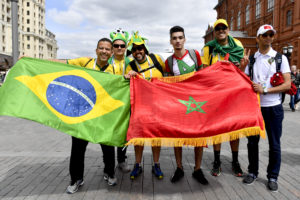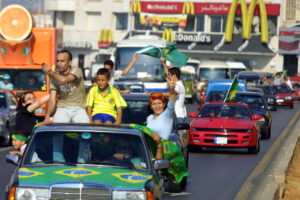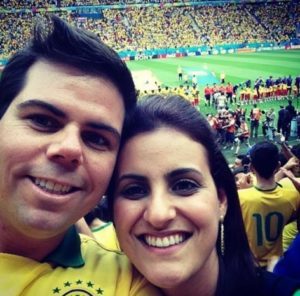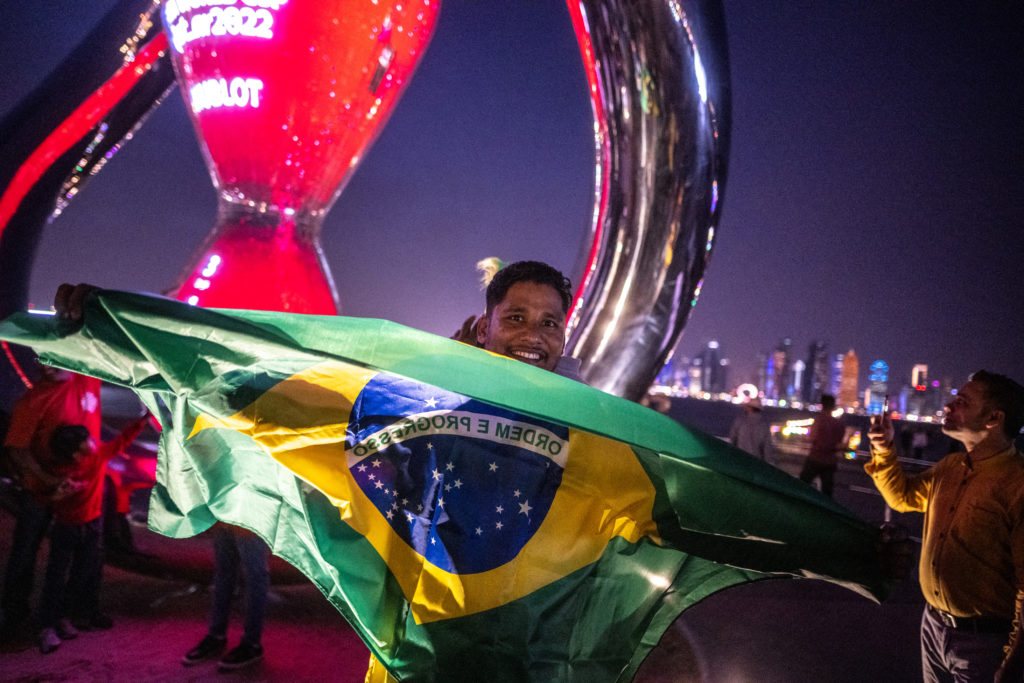São Paulo – As soon as the Brazilian national football team debuts in the 2022 World Cup, it won’t be just those who live in Brazil making part of the big crowds of green and yellow fans. The Brazilian team is one of the favorites of foreign fans, including Arabs. This year, Qatar will host the competition to kick off this Sunday (20) and last for 28 days, with the participation of 32 teams. Brazil will play its first match next Thursday (24) against Serbia.

The sports marketing professor at São Paulo’s Higher School of Advertising and Marketing (ESPM), Ivan Martinho, said the Brazilian team is one of the favorites of Arab fans, mainly because the countries in the region have no tradition in the sport. This is primarily due to the winning history the Brazilian team has. “The Brazilian football team is the most in the world, in addition to being the only five-time champion. Although football was invented in England, Brazil is the country of football.”
Therefore, despite the fact four Arab teams will play in the group stage, the yellow team, for Ivan, has a great chance of being welcomed by the Arab fans if they advance to the round of 16 and Morocco, Saudi Arabia, Tunisia, and Qatar do not progress in the competition. The first three countries earned their spots in the competition through continental qualifiers, and Qatar, as the host country.

The ESPM professor explained Brazil’s football fame began mainly at the height of Pelé’s career, and he remains a renowned figure in the sport. In addition to him, two other names helped this internationalization: Ronaldo Nazário and Ronaldinho Gaúcho. Ivan said for a long time, people consumed football, considering the team as a whole, but the new generations started to cheer more for individual players.
“People over 35, 40 years old might become attached to the Brazilian national team because they had Brazil as a football reference in their childhood. The new generation consumes football through social media without watching the game. So it would be expected for people to root for Mbappé, a world champion, or Neymar, Vini Júnior, and Messi,” says Ivan. “The younger Arab generation also has the chance to support and identify with players who have Arab parents or grandparents, like Zidane (of Algerian descent), a former player from France,” said the professor.

Brazilian players are also likely to stand out among Arab fans because they play in European championships. These competitions have gained more presence on TV and streaming than the World Cup itself, which takes place every four years. In addition to Brazil, other European teams, such as France, Italy, Germany, and England, could stand out among Arab fans because, in addition to being great teams, they are concerned with playing friendlies in Arab territories and taking their products to these countries. The UEFA Champions League has a store in a mall in Abu Dhabi, in the United Arab Emirates.
Arabs personalities are related to some European teams, such as Qatari Nasser Al-Khelaifi, the current president of France’s Paris Saint-Germain (PSG). Because of this, many Qataris support PSG and, consequently, the French national team. The Saudis bought the English club Newcastle United for USD 430 billion at the end of last year, and the local fans are more related to England, the team’s headquarters.
Rooting for brazil
In addition to being extremely popular and having players who stand out in European championships, Brazil has gained fans in Arab countries because of the sizeable Brazilian communities. “The Brazilian way of cheering differs from other nationalities, which attracts and infects other cultures,” said Ivan. Lebanon is one of those countries with one of the largest communities of Brazilians. Furthermore, the biggest Lebanese community outside Lebanon is in Brazil.

“According to a study I carried out, from 1980 onwards, many Lebanese returned to Lebanon for family and business reasons after marrying Brazilian women. That community now has about 20,000 people, and the majority is concentrated in the Bekaa Valley, close to the border with Syria. In some cities like Sultan Yaakoub, 90% of the inhabitants speak Portuguese,” said Brazilian researcher Roberto Khatlab, who lives in Lebanon, where he is director of the Center for Latin American Studies and Cultures (CECAL) at the Holy Spirit University of Kaslik (USEK).
Living in Lebanon for over three decades, the 60-year-old Brazilian researcher moved for the first time in 1983 to finish his studies. However, he stayed for seven years, married a Lebanese woman, and worked at the Brazilian embassy. He recalls what happened with the civil war during the 1982 and 1986 World Cups. “During the war, when Brazil played, the bombings stopped so people could watch the games from all sides. When Brazil won, shots were fired with joy, and on the walls of the ruins of Beirut, it was common to see the names Pelé and Sócrates written on them. The Lebanese generally know the names of all the players on the Brazilian national team,” recalled Roberto.

With the end of the civil war, support for Brazil increased, with flags spread across the streets and meetings in public places to watch the matches. But this year, the preparation for the World Cup is different. According to the researcher, who returned to Lebanon in 1995, this decrease could be related to the COVID-19 pandemic, the explosion at the port of Beirut in 2020, and the political and economic crises currently experienced by the Arab country.
Even when there is no World Cup, despite football not being the country’s favorite sport, the competitions of Brazilian teams are closely followed. In addition to their affinity with Brazil, Roberto explains the Lebanese are close to the Germans, French, and Italians, who have their flags flown together with the green and yellow ones when World Cups occur. Despite having four Arab teams qualified for the Cup, Roberto guarantees the Lebanese mostly cheer for Brazil. An assiduous fan, he says he has always followed Brazil in the World Cups alongside his Lebanese friends and family, and this year will be no different.
UAE
Thiago Rodriguez, a chemical engineer and flavorist of International Flavors & Fragrances (IFF), is 40 years old and has lived in Dubai since 2020. He agrees that part of the fans from the country he lives in cheer for Brazil, despite not having much contact with the locals. In addition, he, who has friends from different nationalities, says they mostly sympathize with the Brazilian team.

“I believe football is a sport everyone likes, and I see the Arabs follow the sport, with more emphasis on competitions in the European Leagues. But Brazil ends up being very dear to them. Whenever I say I am Brazilian, they automatically associate the country with football, the players, and samba.”
For the Cup, Thiago is excited to watch Brazil’s and other teams’ matches alongside his Brazilian friends, and highly patriotic Portuguese, Australian, and English. Due to the geographical proximity, he believes residents of Dubai could also support Saudi Arabia. Due to the multinationals, they may be inclined to follow the games of Germany, England, and France.
While living in Brazil, Thiago recalls always watching the Brazilian team’s matches alongside his family and friends. A confessed supporter of São Paulo’s Corinthians, he also used to watch the club’s matches. In the last World Cup, while living in Indonesia, he watched all the games with his wife and two children.
*Special report by Rebecca Vettore for ANBA.
Translated by Elúsio Brasileiro




